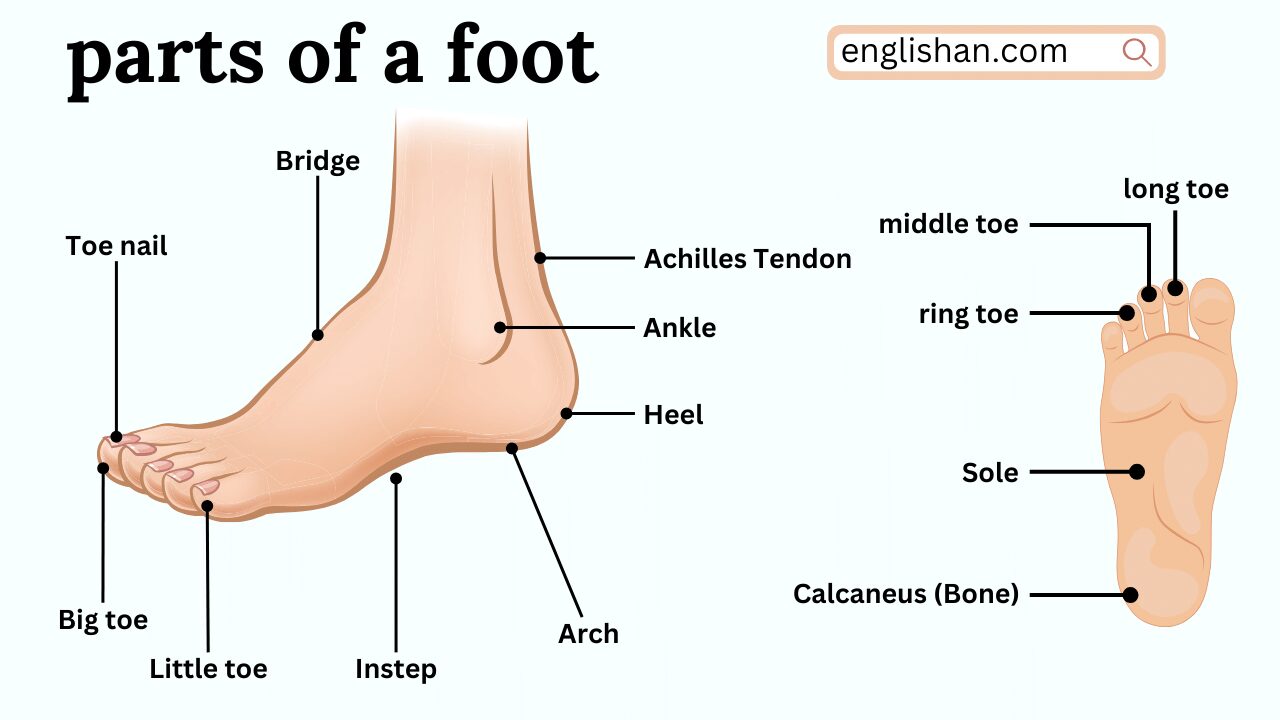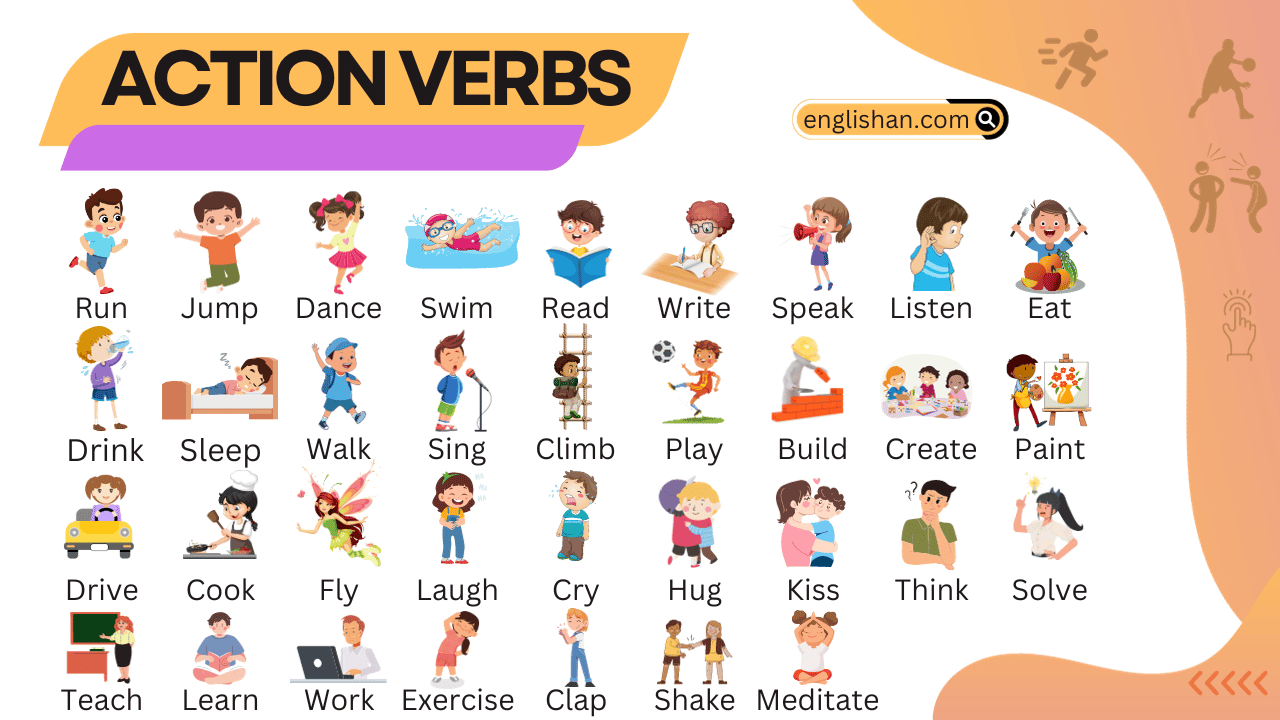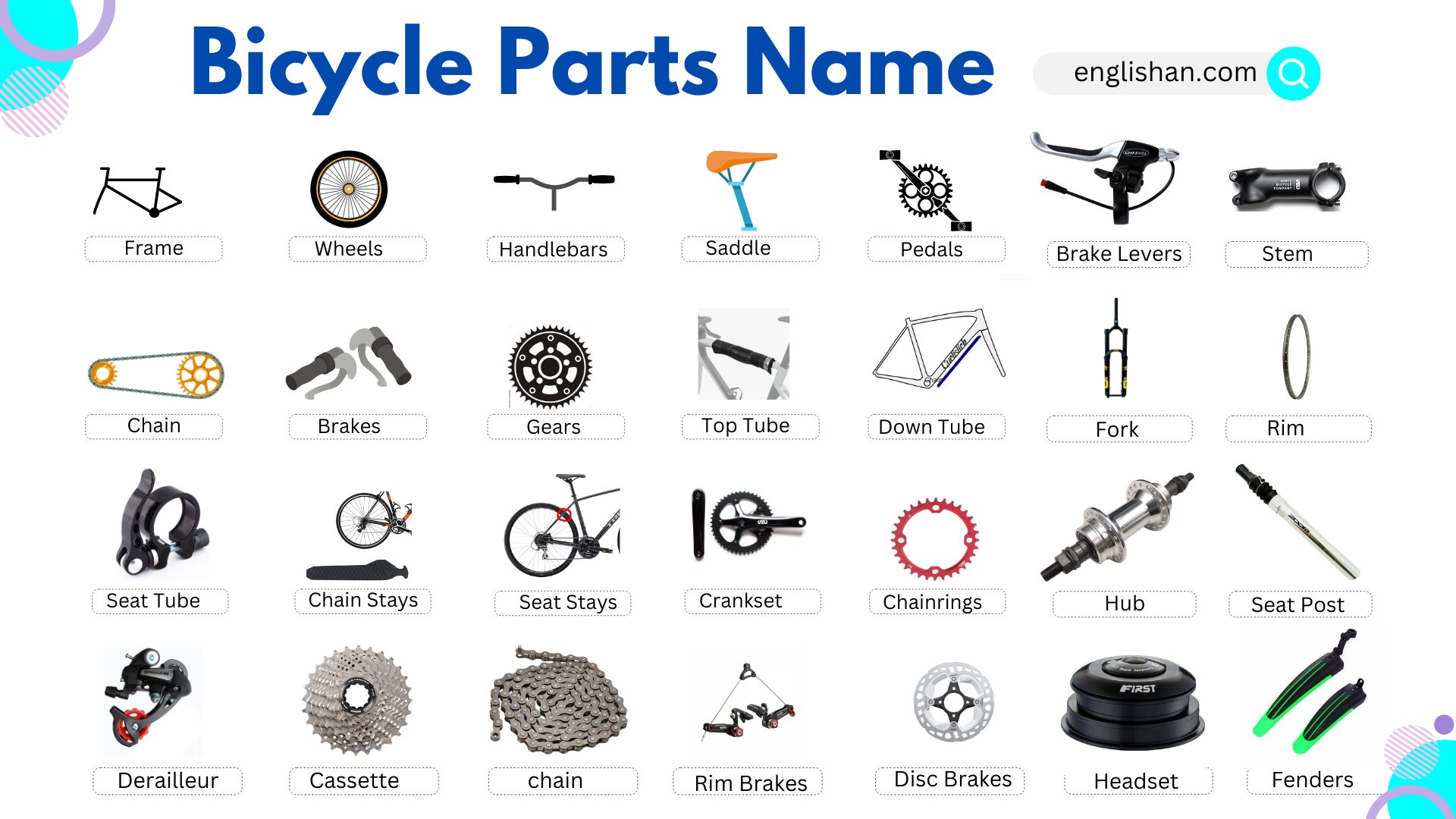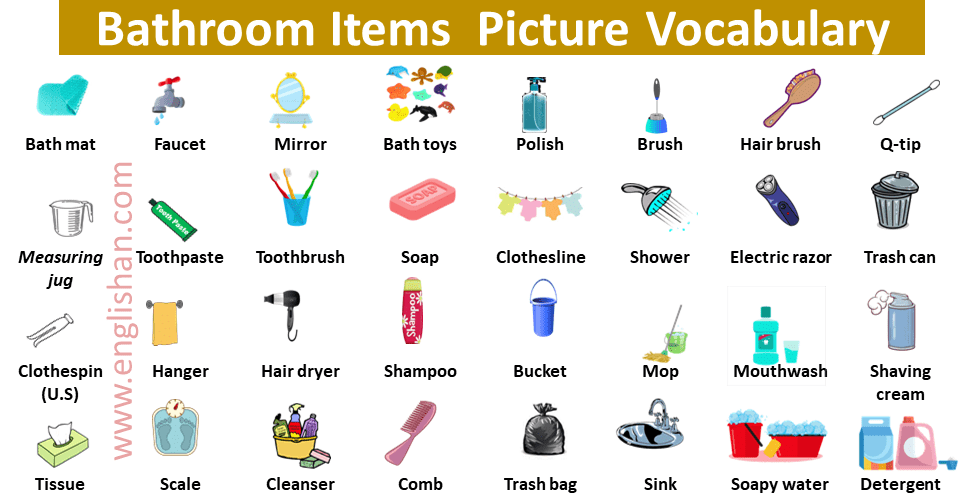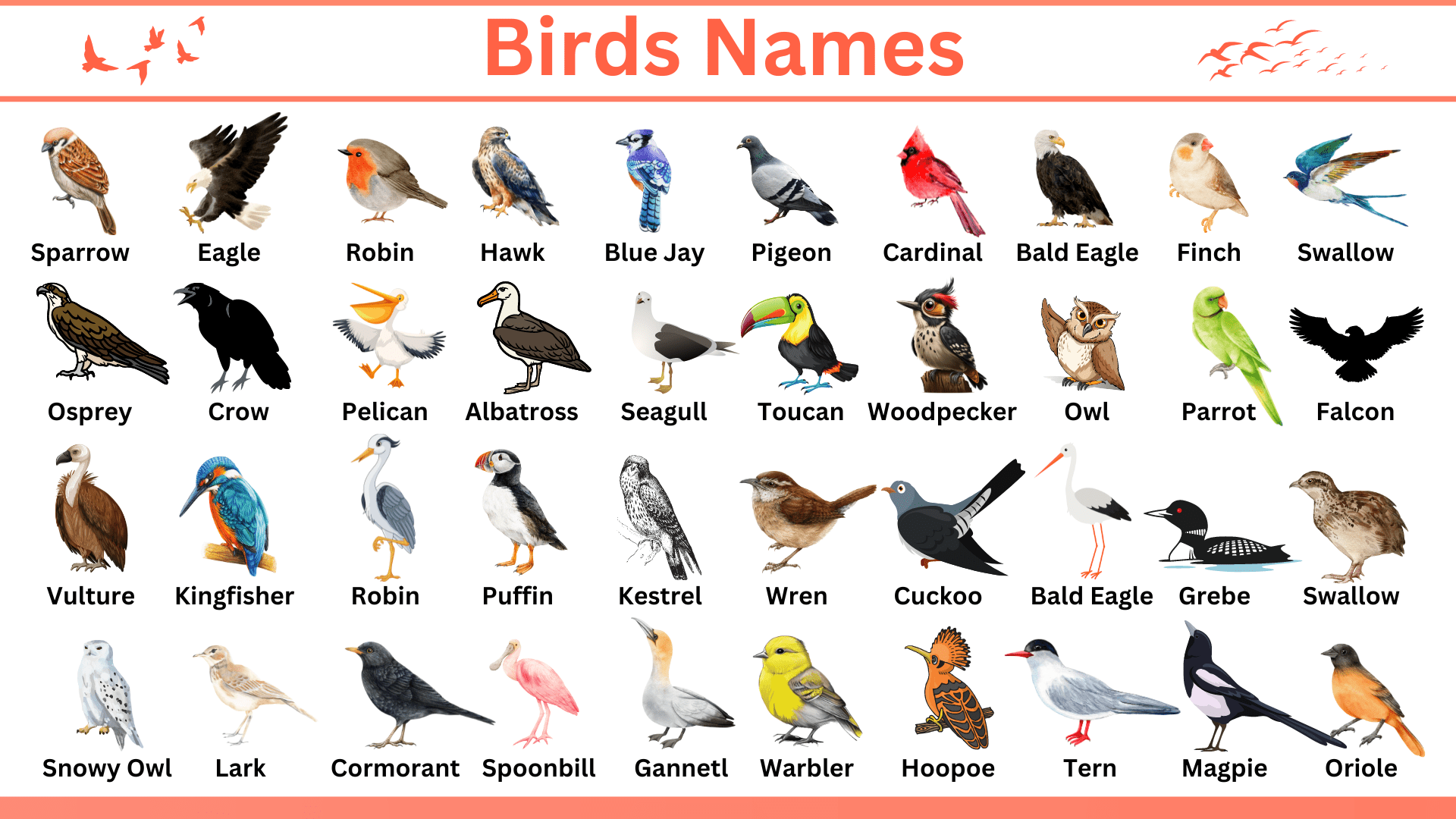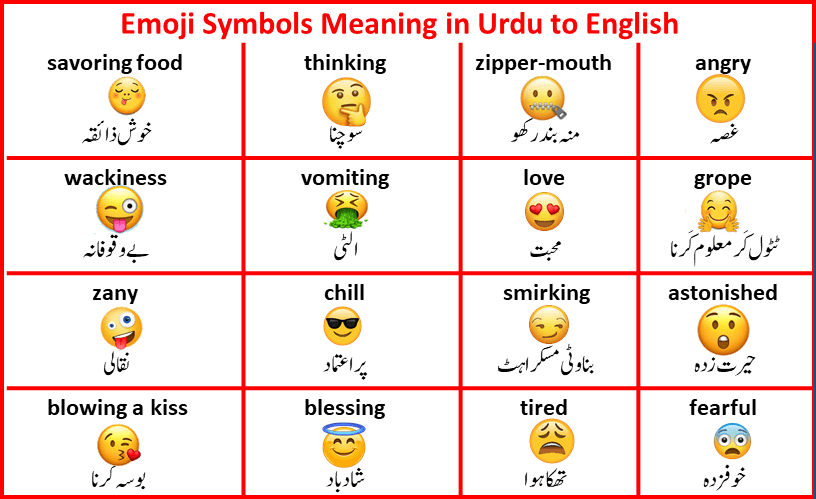Contents
Knowing the Parts of Foot helps us understand how we stand, walk, and run. The foot has parts like the heel, arch, and toes. Each part has its own job in helping us move and keep our balance. When we know more about our feet, we can take better care of them and understand how they help us every day.
What is Foot?
The foot is the part at the bottom of your leg. It helps you walk, run, and stand. It has bones, muscles, and other stuff that make it work. Taking care of your feet by wearing good shoes and keeping them clean is important so you can move around easily and feel good.
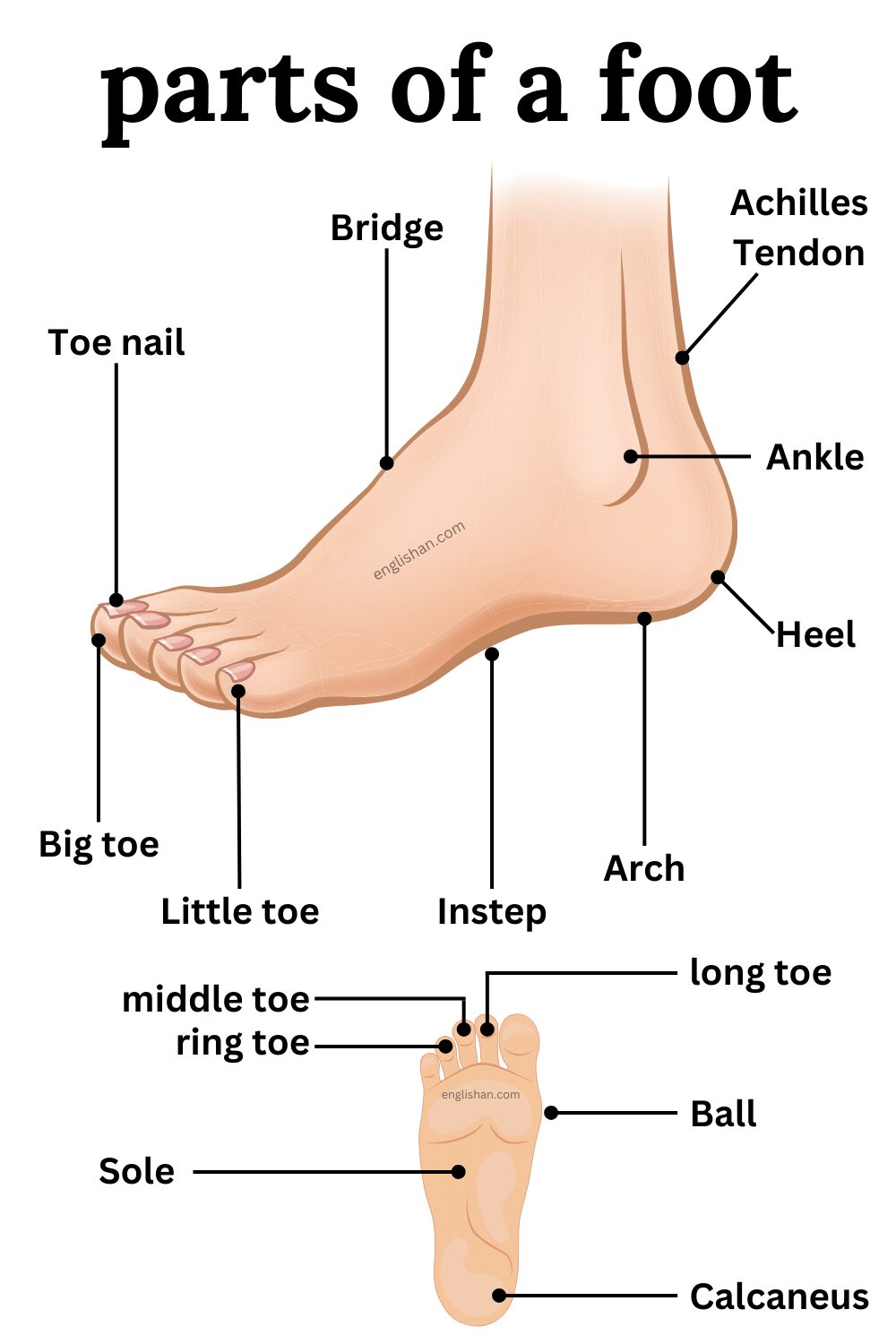
Parts of Foot
It has three main parts:
1. Hindfoot
This includes the ankle and the heel. The ankle connects the leg, and the heel is the back part.
2. Midfoot
This is like the arch in the middle of the foot. It helps with shock absorption and supports its structure.
3. Forefoot
This is the front part of the foot, where the toes are. It helps with balance and pushing off the ground when walking or running.
Bridge
The bridge of the foot refers to the curved area on top, between the ball of the foot and the ankle.
Toenail
Toenails are the hard coverings at the end of each toe. They protect the toes and can be trimmed for hygiene.
Big Toe
The largest toe on it is typically located on the inner side. It plays a crucial role in balance and propulsion.
Little Toe
The smallest toe is on the outer side.
Instep
The arched middle part that often associated with the top part of the foot where the arch is located.
Arch
The arch is the curved structure on the bottom of the foot. It helps distribute body weight and provides shock absorption.
Heel
The back part of the foot, beneath the ankle. It supports the body’s weight and plays a significant role in walking.
Ankle
The joint that connects the foot to the leg. It allows for up-and-down movement.
Achilles Tendon
A strong tendon that connects the calf muscles to the heel bone. It is important for walking and running.
Middle Toe
One of the toes located between the big toe and the little toe.
Ring Toe
Another term for the fourth toe, which is the one next to the little toe.
Sole
The bottom surface of the foot that comes into contact with the ground.
Long Toe
This could refer to any toe that is longer than the others, commonly the second toe.
Calcaneus
The technical term for the heel bone, the largest bone in the foot.
Understanding these parts helps in describing and addressing various foot-related concerns and conditions.
Anatomy
- Bones:
- The foot consists of 26 bones, including the tibia and fibula of the lower leg.
- These bones are grouped into three main parts: the hindfoot (ankle and heel), midfoot (arch), and forefoot (toes).
- The tarsal bones make up the hindfoot, the metatarsals form the midfoot, and the phalanges constitute the forefoot.
- Joints:
- Joints in the foot include the ankle joint, subtalar joint, and various joints between the tarsal, metatarsal, and phalangeal bones.
- These joints provide flexibility and support for weight-bearing activities.
- Muscles:
- Numerous muscles control movement and provide support.
- Intrinsic muscles are located within the foot, while extrinsic muscles originate outside the foot and extend into it.
- Tendons:
- Tendons connect muscles to bones and play a crucial role in foot movement.
- The Achilles tendon connects the calf muscles to the heel bone and is vital for walking and running.
Functions
The foot performs several essential functions in the human body:
- Support and Weight Bearing: Supports the body’s weight, providing a stable foundation for activities like standing, walking, and running.
- Shock Absorption: The arches of the foot act as natural shock absorbers, reducing the impact on joints and soft tissues during activities.
- Balance and Propulsion: The foot contributes to maintaining balance and propelling the body forward during movements such as walking and running.
- Sensation: The soles of the feet are rich in nerve endings, providing sensory feedback that helps with balance, spatial awareness, and coordination.
These functions are crucial for overall mobility and well-being. Proper care and attention, including wearing suitable footwear, exercising, and addressing any issues promptly, are important for maintaining these functions and preventing discomfort or injury.
Common Issues
- Plantar Fasciitis:
- Inflammation of the tissue connecting the heel bone to the toes, causes heel pain.
- Bunions:
- Deformities at the joint where the big toe meets the foot, leading to a bony bump.
- Flat Feet:
- Lack of arch in the foot, potentially causing pain and discomfort.
- Achilles Tendonitis:
- Inflammation of the Achilles tendon, often due to overuse or injury.
- Ingrown Toenails:
- Toenails that grow into the skin, causing pain and infection.
Care
- Proper Footwear:
- Wearing shoes that provide proper support and fit is crucial for health.
- Regular Exercise:
- Strengthening exercises and stretches can help maintain flexibility and strength.
- Good Hygiene:
- Regular cleaning, drying, and trimming of toenails help prevent infections.
- Orthotics:
- Custom or over-the-counter shoe inserts can provide additional support and alleviate certain conditions.
- Prompt Medical Attention:
- Seeking medical advice for persistent pain, swelling, or any other concerning issues is important.
The human foot is a complex and remarkable structure that plays a vital role in our daily activities and overall well-being. Proper care and attention to health contribute to a person’s overall mobility and quality of life.
Quiz:
- What is the main function of the foot?
- A) Hearing
- B) Weight Bearing
- Which part connects the calf muscles to the heel bone?
- A) Tibia
- B) Achilles Tendon
- Where is the arch of the foot located?
- A) Front
- B) Middle
- What is the back part called?
- A) Arch
- B) Heel
- Which toe is typically the largest on the foot?
- A) Little Toe
- B) Big Toe
- What is the curved area on top of the foot between the ball and the ankle called?
- A) Ridge
- B) Bridge
- Which bone is known as the heel bone?
- A) Femur
- B) Calcaneus
- What part of the foot is associated with balance and propulsion during walking?
- A) Instep
- B) Sole
- Which joint connects to the leg?
- A) Knee
- B) Ankle
- What is the main function of the arch?
- A) Absorbing Light
- B) Shock Absorption
- Which tendon connects the calf muscles to the heel bone?
- A) Hamstring
- B) Achilles Tendon
- Where are toenails located on the foot?
- A) Bottom
- B) End of Toes
- What is the function of the arches during movement?
- A) Producing Heat
- B) Shock Absorption
- Which part is crucial for maintaining balance?
- A) Little Toe
- B) Arch
- What is the bottom surface that touches the ground called?
- A) Topside
- B) Sole
Answers:
FAQs:
The foot has several parts, including the toes, ball, arch, heel, instep, ankle, sole, and footpad. These parts work together to help with walking, running, and balance.
Here are the 7 tarsal bones in the foot, made easy:
1. Talus – The bone in your ankle.
2. Calcaneus – The heel bone.
3. Navicular – A small bone in the middle of your foot.
4. Medial cuneiform – A bone on the inside of your foot.
5. Intermediate cuneiform – A bone next to the medial cuneiform.
6. Lateral cuneiform – A bone on the outside of your foot.
7. Cuboid – A square-shaped bone on the outer side of your foot.
These bones help your foot move and stay balanced!
The foot has three main parts:
1. Forefoot – The front part, including the toes and ball of the foot.
2. Midfoot – The arch, which helps with balance.
3. Hindfoot – The back part, including the heel and ankle.
These parts work together to help you walk and move.
The arches of the foot are curved areas that help support your body weight when you walk or stand. There are three main arches in the foot:
1. Medial Arch – The higher arch on the inside of your foot.
2. Lateral Arch – The lower arch on the outside of your foot.
3. Transverse Arch – The arch that goes across your foot.
These arches help you balance and move.
You May Also Like
